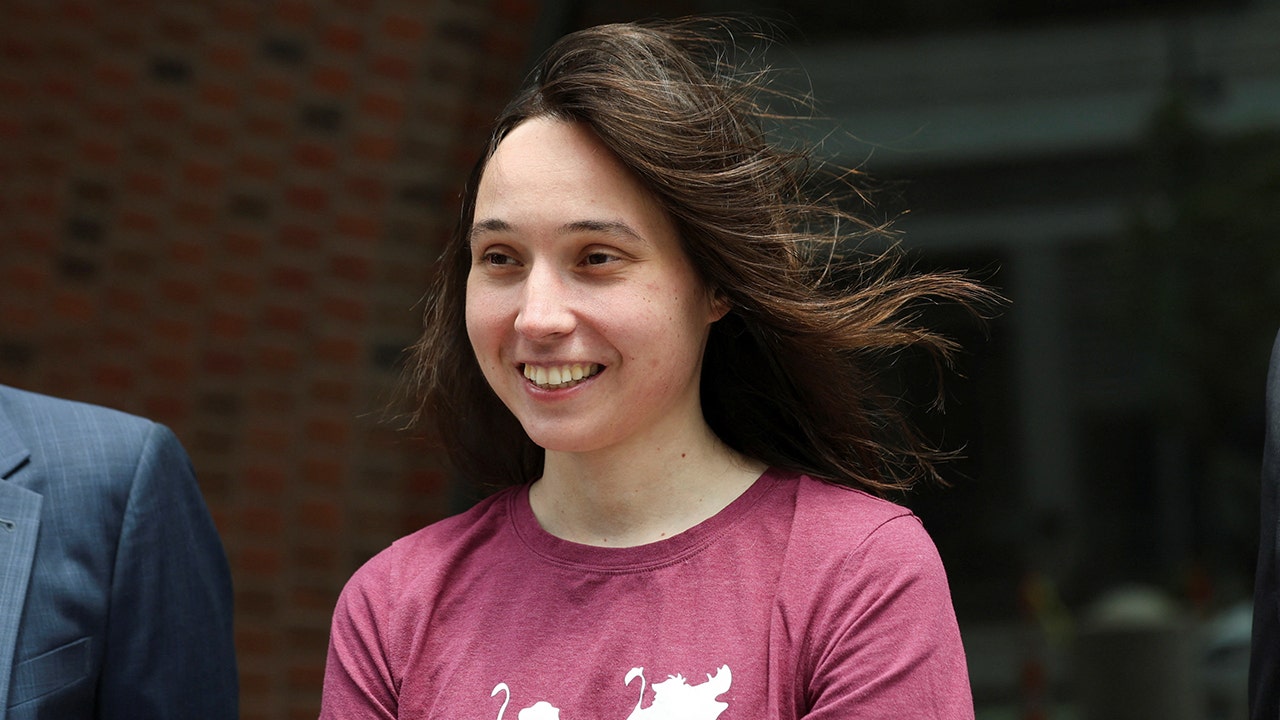Three right-wing political groups at the European Parliament are attempting for a second time to establish an investigative inquiry committee into NGO financing by the European Commission, as Transparency International alleges an MEP-orchestrated smear campaign against civil society and is launching a complaint about leaks.
German newspaper Welt Am Sonntag claimed last week that the EU executive had allegedly secretly paid environmental NGOs up to €700,000 to promote the bloc’s climate policy. The Commission denied the allegationsof secret payments and a spokesperson told Euronews that the executive exercises a high degree of transparency when it comes to providing funding to NGOs.
“The latest revelations published by the German press about murky ties between the European Commission and environmental NGOs make the establishment of a parliamentary committee of inquiry into the so-called ‘Green Gate’ scandal ever more urgent,” European Conservatives and Reformists MEP Carlo Fidanza said in a press release, adding: “This committee, which has been requested by the ECR Group and backed by 200 MEPs from various political families, is essential.”
Hungarian Fidesz MEPs to launch targeted information requests
Hungarian Patriots MEP Csaba Dömötör told Euronews he believes more transparency is needed in relation to NGO contracts with the European Commission.
“We see that they finance a blindly ideologically driven agenda from taxpayers’ money, for which the price and the burden will be paid by taxpayers,” Dömötör said, adding: “The Commission says those contracts are not secret. We will see, as we will launch targeted information requests to know the content of those lobbying contracts. The European Commission will have its chance to open up and to prove that the democratic values that they request from member states are also valid for themselves.”
The Welt allegations first surfaced in February, and in April a parliamentary committee voted down a raft of amendments from right-wing lawmakers seeking to incorporate sharp criticism of EU funding for non-governmental organisations into the discharge of the bloc’s 2023 budget.
As well as rejecting a joint proposal by Fidesz and France’s Rassemblement National to condemn an “enormous EU-NGO propaganda complex”, the committee at that time also rejected a slew of amendments tabled by conservative European People’s Party (EPP) lawmaker Monika Hohlmeier.
Among these was a call for the EU Court of Auditors (ECA) to conduct a probe specifically into the LIFE Programme, the bloc’s funding instrument for environmental projects on the ground, a small portion of which supports campaign groups through operating grants.
The Conference of the Presidents at the European Parliament will now decide on the establishment of the committee next week in Strasbourg. Another two right-wing groups, Patriots for Europe and Europe of Sovereign Nations, also lined up in support of the initiative. A source from ESN told Euronews, the group will support any inquiry into the misuse of public funds.
“The Commission is paying activists to shape public opinion – this is not neutral governance, but orchestrated democracy.”
The position of the European People’s Party group is not clear-cut, since not all MEPs share Hohlmeier’s position.
NGOs see a coordinated attack against their funding
Meanwhile, Transparency International EU director Nick Aiossa told Euronews that the claims of NGO’s shadow-lobbying for the Commission have already been debunked.
“These are already debunked stories that were circulated in February,” said Aiossa, adding: “I simply don’t understand why the German press would jump on this, unless, of course, it has a more political agenda behind it from the people who are leaking the contracts.”
He said that Commission funding of civil society in order to participate in public debate is a good thing, and that ample transparency measures already exist. Back in April, Transparency International stood up against the idea of an inquiry committee in an open letter.
“These coordinated attacks that we’ve seen from this House over the last six months have three very clear objectives. They’re meant to discredit NGOs. They’re meant to distract NGOs to try and counter these false narratives in the press but ultimately, unfortunately, the ultimate objective is to defund NGOs. And we are about to see this play out in the new budget negotiations that are going to take place over the next several years,” Aiossa added.
He said that a small circle of right-wing MEPs is responsible for leaking sensitive data to the press, and that Transparency would be filing a legal complaint on the issue.
“We’ve had a handful of MEPs have access to a limited amount of confidential documents that they are using to leak to journalists as part of a smear campaign against NGOs. There are rules in place in how these documents must be handled because they are confidential, and there’s no accountability in this House on these leaks. And so I intend to submit a formal complaint to both the Commission as well as the president of the Parliament.”
How NGOs receive funding from the European Commission
At the heart of the latest media revelations on EU funding for environmental NGOs are the LIFE operating grants. These are part of the EU’s LIFE programme, a €5.4 billion budget (2021–2027) aimed at financing projects related to green innovation, circular economy, energy efficiency, nature conservation, and pollution reduction. Around €15.6 million of this is allocated to environmental NGOs via operating grants and under this scheme, individual organisations may receive up to €700,000 annually.
Grants are awarded through open calls with clear eligibility criteria and NGOs are evaluated not by the Commission directly but by agencies such as, in the case of LIFE , the European Climate, Infrastructure and Environment Executive Agency (CINEA).
Advocacy through lobbying is permitted but not required or directed under the grants.
Each grant includes the disclaimer that “views and opinions expressed” by NGOs “do not necessarily reflect those of the European Union”. Grant conditions are public, and there is no requirement that applicants align their objectives with Commission interests to receive funding.
In short: NGOs retain full autonomy over how they use the money, within legal and contractual boundaries. They are subject to transparency rules, must uphold EU values, and are routinely audited. If they fail to implement their work programmes, funding can be withdrawn.
While much of the oversight relies on self-reporting – one of the main pitfalls of the system – the Commission is enhancing its risk-based verification following advice from the European Court of Auditors.
In April 2025, the EU auditors labelled the Commission’s funding process as “opaque” and warned of potential reputational risks. However, it found no evidence during a year-long probe of any wrongdoing by either NGOs or European Commission officials.
As a result, the Commission last year issued new guidance to prevent EU funding from being used for direct lobbying of EU institutions following these concerns.
With additional reporting by Gerardo Fortuna
Read the full article here


